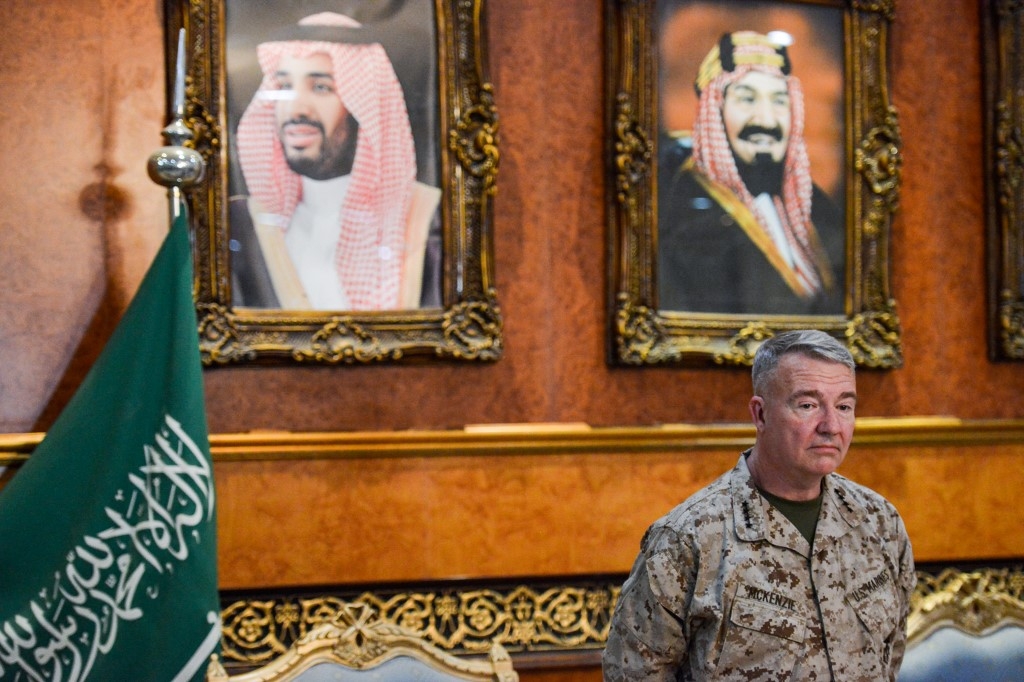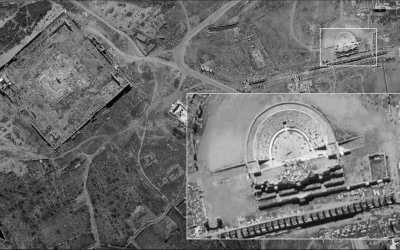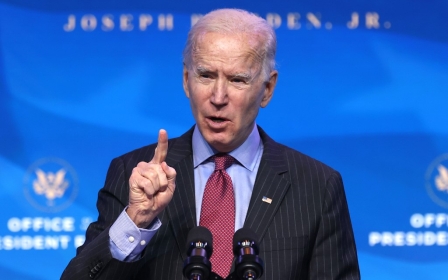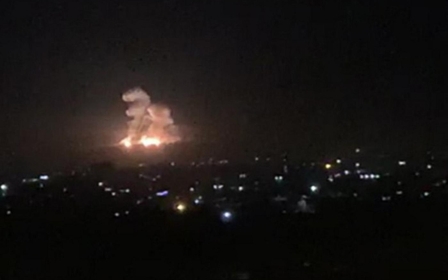Trump shakes up US defence structure, moves Israel under Middle East command

Outgoing US President Donald Trump has ordered the US military to move Israel from the purview of its European command to its Middle East command, the latest in a series of status-quo-breaking moves in the region.
With just days left in the White House, it was revealed that US Central Command (Centcom) - which oversees military issues in the Middle East - will now include Israel within its defence structure, a move pro-Israel groups have long advocated.
The departure from decades-old military policy, confirmed by the Department of Defense on Friday, follows several Arab nations agreeing to establish diplomatic ties with Israel following US mediation and reported incentives.
"The easing of tensions between Israel and its Arab neighbors subsequent to the Abraham Accords has provided a strategic opportunity for the United States to align key partners against shared threats in the Middle East," a Pentagon spokesperson told Middle East Eye in an email.
"Israel is a leading strategic partner for the United States, and this will open up additional opportunities for cooperation with our US Central Command partners while maintaining strong cooperation between Israel and our European allies," the spokesperson continued.
The US military's European command has historically been charged with overseeing relations with Israel due to animosity between Arab nations and the occupying power. The arrangement allowed American generals in the Middle East to interact with Arab states without having a close association with Israel.
While most Arab countries have refused to establish diplomatic ties with Israel amid its military occupation over the Palestinian population, countries under Centcom's purview that have signed accords with Israel include Egypt, Jordan, the United Arab Emirates (UAE), Bahrain and Sudan.
All except Egypt and Jordan - two countries with which Israel shares a border - are new diplomatic efforts, however, and it is unclear what consequences could arise if the American bid to strengthen Arab ties with Israel were to falter.
'Timing could be right'
Still, Anthony Zinni, a retired Marine general and former head of Centcom, told the Wall Sreet Journal that the "timing could be right to do this".
"We could see more Arab countries recognise Israel, so it makes sense to bring them all in under one unified American command," General Zinni said.
"It will make security cooperation better. It would not have made sense in the past because there was too much mistrust. There was a fear then that if Israel was in the Central Command there would be US intelligence-sharing with Israel on its Arab neighbors."
Part of the reason for such a structural change seems to be related to Washington's effort to unite the region against Iran, which is also viewed as one of Israel's greatest adversaries.
The Trump administration has yet to officially announce the move, and the office of incoming President-elect Joe Biden has declined to comment.
Retired Army Major General Mike Jones, who served as Centcom chief of staff in 2011 under then-commander James Mattis, told the Military Times that the move "makes sense", given that "many Israeli issues are tied to the other countries" under the command.
Still, Jones said the idea of one US command dealing with both Israel and countries that officially view it as an enemy state - which continues to include the majority of the Middle Eastern powers - has long been an issue.
"The argument against has always been 'it's hard to have credibility with two countries who are enemies'," said Jones. "If one knows you have close relationships with their enemies, it's hard to build personal trust and get really full disclosure conversations."
In some cases, countries within one particular US command will form military coalitions that see soldiers from various countries in the region working together during a single operation, but Jones said it is unlikely that Israel would join such a coalition with the US and Arab states any time soon.
"As for being part of a US-led coalition, with boots on the ground, that's a pretty big leap, even with the political progress that’s been made with some of their neighbors," said Jones.
"You never know of course… but I don't see a public deployment by the [Israeli army] in a coalition with Arab members, short of some really wild scenarios."
Middle East Eye delivers independent and unrivalled coverage and analysis of the Middle East, North Africa and beyond. To learn more about republishing this content and the associated fees, please fill out this form. More about MEE can be found here.






